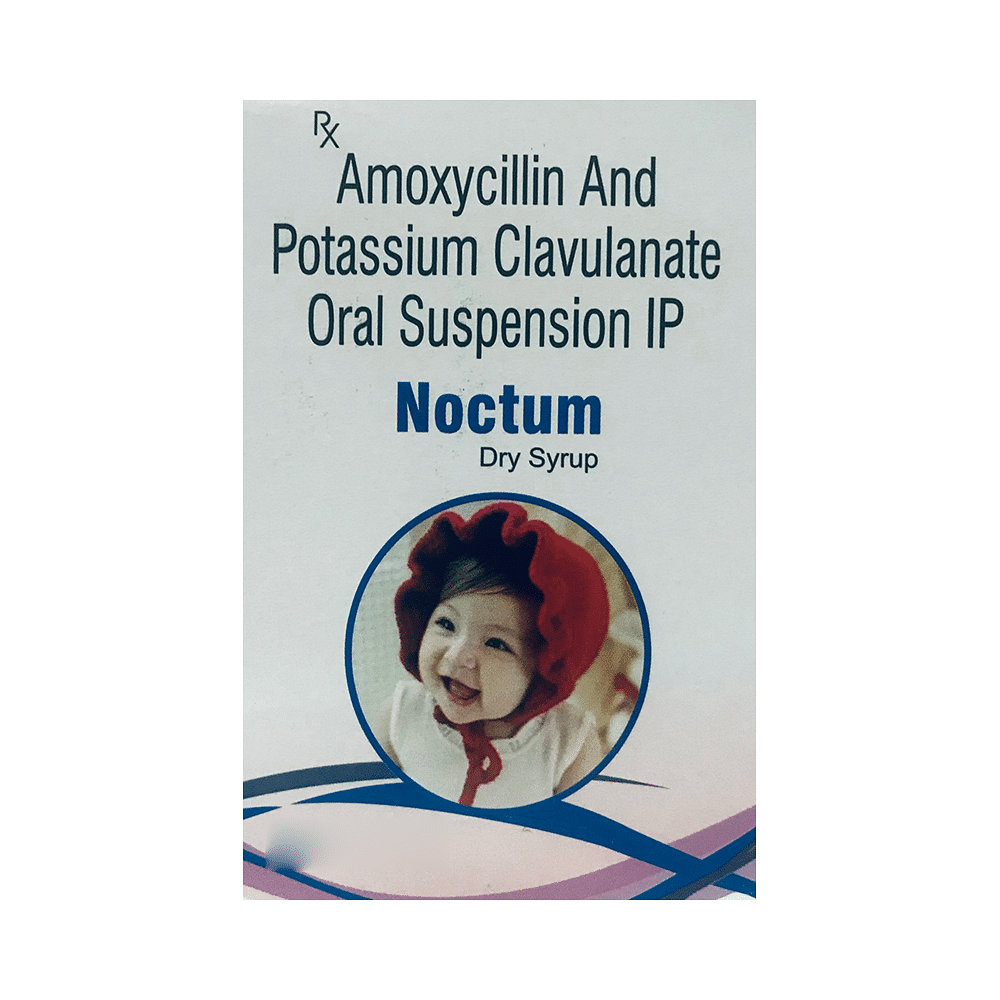
D-Clav Dry Syrup
Manufacturer
Dorphyll Healthcare
Salt Composition
Amoxycillin (200mg/5ml) + Clavulanic Acid (28.5mg/5ml)
Key Information
Short Description
D-Clav Dry Syrup is an antibiotic medicine that helps treat bacterial infections of the ear, nose, throat, chest, lungs, teeth, skin, and urinary tract.
Dosage Form
Oral Suspension
Introduction
D-Clav Dry Syrup is an antibiotic medicine that helps treat bacterial infections of the ear, nose, throat, chest, lungs, teeth, skin, and urinary tract. It is capable of killing bacteria that have become resistant to other therapies and thus also helps treat tuberculosis that is resistant to other treatments.
Directions for Use
Your child must complete the entire course of antibiotics. Stopping too soon may cause the bacteria to multiply again or cause another infection.
How it works
D-Clav Dry Syrup is an antibiotic. It has two active agents amoxycillin and clavulanic acid. Amoxycillin works by preventing the formation of the bacterial protective covering (cell wall) essential for the survival of the bacteria. Whereas clavulanic acid serves a special purpose of inhibiting an enzyme (beta-lactamase) that is produced by resistant bacteria. This makes the combination of amoxycillin and clavulanic acid an effective line of treatment for many types of infections.
Quick Tips
Your child must complete the entire course of antibiotics. Stopping too soon may cause the bacteria to multiply again or cause another infection. Encourage your child to drink plenty of water in case diarrhea develops as a side effect. Never give D-Clav Dry Syrup until and unless prescribed by the doctor. Do not give D-Clav Dry Syrup to treat common cold and flu-like symptoms caused by viruses. Check ‘expiry’ before giving D-Clav Dry Syrup to your child. Immediately discard all the expired medicines.
Related Medicines

Greenmox CV Oral Suspension

Moxizest-CV Dry Syrup

Alnext CV Oral Suspension

Acdok CV Dry Syrup

Almoclav Dry Syrup

Noctum Dry Syrup

Arowin-CV Oral Suspension

Metclav Duo Oral Suspension

Amocrin-CV Dry Syrup

Invumox Drop
Frequently asked questions
Can other medicines be given at the same time as D-Clav Dry Syrup?
D-Clav Dry Syrup may interact with other medications or substances. Always tell your child's doctor about all other medicines they are taking before starting D-Clav Dry Syrup. It is also important to check with your child's doctor before administering any medication to your child.
Can I get my child vaccinated while on treatment with D-Clav Dry Syrup?
Antibiotics generally do not interfere with the ingredients in vaccines or cause a negative reaction in children who have recently received one. However, it is recommended to hold off on vaccinating until after your child's illness has fully resolved. As soon as they feel better, their doctor can provide vaccination recommendations.
Which lab tests may my child undergo while taking D-Clav Dry Syrup on a long-term basis?
Regular monitoring for kidney and liver function is often recommended with prolonged treatment. This helps ensure your child's overall well-being.
Can I give a higher than the recommended dose of D-Clav Dry Syrup to my child?
Giving a higher dose than recommended could increase the risk of side effects. If your child experiences worsening symptoms, contact their doctor for re-evaluation.
Can I stop giving D-Clav Dry Syrup to my child when the symptoms are relieved?
No, do not stop administering D-Clav Dry Syrup unless your child has completed the full course of treatment. Even if symptoms improve before complete infection resolution, it is essential to continue medication as beneficial effects may persist.
Can the use of D-Clav Dry Syrup cause diarrhea?
Yes, D-Clav Dry Syrup can cause diarrhea. This is because it acts as an antibiotic, killing harmful bacteria in your child's system. Additionally, the medication may affect beneficial bacteria in their stomach and lead to diarrhea. Encourage your child to consume plenty of fluids if experiencing diarrhea. If the issue persists or shows signs of dehydration (like dark-colored, strong-smelling urine and reduced urination frequency), seek guidance from their doctor before administering any other medicine.
Do all viral common colds result in secondary bacterial infection?
While most viral colds do not lead to secondary bacterial infections. Antibiotic use is generally unnecessary unless your child's doctor has indicated a specific need based on their condition. Only your healthcare professional can determine if antibiotics are necessary.
The mucus coming out of my child’s nose is yellow-green. Is it a sign of a bacterial infection?
Yellow or green mucus in the nose does not automatically indicate a bacterial infection. It's common during a typical cold, and its color change could be normal. The symptoms usually last for a few weeks.
Is there any sign which shows that my child needs immediate medical attention?
Seek immediate medical attention if your child experiences serious allergic reactions (breathing difficulties, skin rashes), gastrointestinal complications (diarrhea), or liver damage (weakness, paleness, vomiting). These are less frequent side effects but must be addressed by a healthcare professional.


